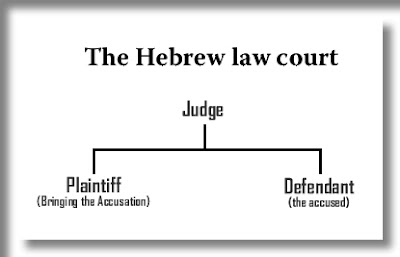 Update – This series was published in book form by the title: Indeed, has Paul Really Said?
Update – This series was published in book form by the title: Indeed, has Paul Really Said?
Before you read another word of this post, please remember that it was Martin Luther who critiqued the teachings of Erasmus in the following manner:
“What shall I say here, Erasmus? You ooze Lucian from every pore; you swill Epicurus by the gallon. If you do not think this topic a necessary concern for Christians, kindly withdraw from the lists; we have no common ground; I think it vital…this is weak stuff, Erasmus; it is too much. It is hard to put it down to ignorance on your part, for you are no longer young, you have lived among Christians, and you have long studied the sacred writings; you leave me no room to make excuses for you or to think well of you.” Luther, The Bondage of the Will, p. 74.
By beginning with Luther’s rebuke of Erasmus, it is my hope that you will view my critique of N.T. Wright in a kinder light. After all, at no point do I accuse Wright of swilling Epicurus by the gallon. In this day of hyper-genteelism, most people expect the gentler form of banter which is  less alarming to the senses. Many today have no desire to be startled by controversy, but I would submit that much of the modern church is a sleeping church, and she needs to be alarmed and startled concerning those who are creeping in unnoticed – in droves. So I will dispense with the formalities that normally attend the book reviews that I write. Most of you know who N.T. Wright is; and many are enamored with his reputation within academia, notwithstanding his doctorate degrees from Merton College, Oxford University and his several honorary doctorate degrees from other institutions. Yet despite his renown as the Canon Theologian of Westminster Abbey, I must sadly report that many of his core convictions are in fact non-canonical, especially when it comes to his teaching concerning the doctrine of justification as revealed in his book: What Saint Paul Really Said [Eerdmans Publishing Company].
less alarming to the senses. Many today have no desire to be startled by controversy, but I would submit that much of the modern church is a sleeping church, and she needs to be alarmed and startled concerning those who are creeping in unnoticed – in droves. So I will dispense with the formalities that normally attend the book reviews that I write. Most of you know who N.T. Wright is; and many are enamored with his reputation within academia, notwithstanding his doctorate degrees from Merton College, Oxford University and his several honorary doctorate degrees from other institutions. Yet despite his renown as the Canon Theologian of Westminster Abbey, I must sadly report that many of his core convictions are in fact non-canonical, especially when it comes to his teaching concerning the doctrine of justification as revealed in his book: What Saint Paul Really Said [Eerdmans Publishing Company].
These posts, tailored for The Armoury, are based upon a series that I taught recently at Pilgrim Bible Church. What I have discovered through my studies is that the process of unpacking Wright’s theology is a rather difficult thing to do. After all, his own arguments are rather convoluted and complex, and the process of breaking it all down could be likened to the matter of unscrambling an omelette. But as stated in the previous post, my focus will be to address Wright’s doctrine of justification by examining the following:
1. Wright’s View on The Doctrine of Justification & God’s Courtroom.
2. Wright’s view of the Apostle Paul.
3. Wright’s View of the Bible.
In this post, we present the query regarding Wright’s presentation of the doctrine of justification as it relates to his view of the Jewish courtroom. We’ll begin with Wright’s own words on page 97 of his book. It is here that he posits an unsubstantiated proposal:
“Part of the particular flavour of the term (righteousness of God), however, comes from the metaphor which it contains. ‘Righteousness’ is a forensic term, that is, taken from the law court. This needs to be unpacked just a bit.

In the (biblical) Jewish law court there are three parties: the judge, the plaintiff and the defendant. There is no ‘director of public prosecutions’; all cases take the form of one party versus the other party, with the judge deciding the issue.”
I certainly agree with Wright when he speaks of righteousness as being a forensic term, and that it incorporates concepts that relate to God’s role as judge. It is for this reason that the O.T. courtroom does provide an important context with which to understand the meaning of righteousness. But this is as far as my agreement goes with Mr. Wright. To the casual reader, Wright’s summary of the Hebrew law court may seem to be acceptable, but it is not. A careful examination of Scripture shows that Wright failed to “unpack” all of its components…
For more information on the publication and release of Indeed, Has Paul Really Said? go here.
